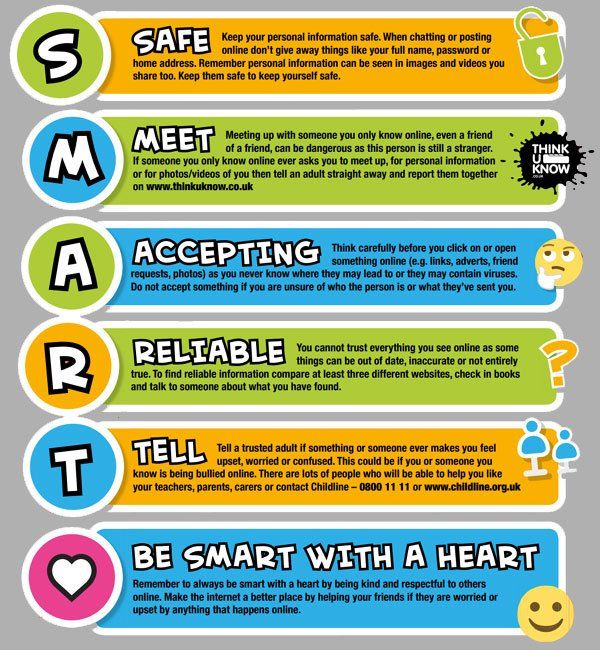Get in touch
01709 850568
office@stgerardsprimary.org

Information for parents
The following advice should help you and your family keep safe online.
Protect your PC
- Source a good anti-virus/anti-spyware software and a firewall.
- Block spam emails.
- Keep your computer up-to-date i.e. download updates regularly.
- Beware of bogus emails and attachments – don’t open emails from people you don’t know.
- Regularly back-up your information on discs or an external hard drive.
- Secure your Wi-Fi using the encryption option. Choose strong passwords, which use a mixture of numbers, upper-case and lowercase letters and symbols. Don’t pick obvious passwords e.g. birthdays or names and make sure you use different passwords for different sites.
Social Networking
- Set security levels so that just your friends can view your profile.
- Pick a username that doesn’t include your real name.
- Be very cautious about posting identifying information about yourself or your family e.g. your address, phone number or mothers maiden name, pets name or date of birth that could be used to identify your security passwords.
- Remember what goes online stays online. Don’t say or publish anything that you may regret later.
- Don’t arrange to meet someone that you have only met online – someone people lie online and may not be who they say they are.
- If someone contacts you with weird or nasty messages, don’t reply to them. Save the messages and contact the site administrator.
- See the helpful "NSPCC Social Network" guides that are linked to at the bottom of this page.
Online Finance and Shopping
- When shopping online always use common sense – if it sounds too good to be true, it probably is.
- Use secure websites. Look for “https://” and the padlock image to show that the site is secure.
- Use a secure payment option such as PayPal or a dedicated or pre-pay credit card for all online purchases.
- Remember banks and financial institutions do not send emails asking you to verify your bank details by clicking on a link. You can always call your bank using the phone number on a genuine piece of correspondence.
Making sure your Children are Safe Online
- Get to know your child’s online habits. They will look to explore the Internet as much as they do the real world. Knowing the sites they go to, the people they speak to and what they do will help to keep them safe.
- Stay alert to any sudden changes in mood or appearance or to any major change in habits or to increased secretiveness.
- Talk to your child about the things they do online, especially if they are spending a lot of time online.
- Make children aware that there are things on the Internet which may distress them.
- Spend some time surfing the Internet yourself. The more that you know about the Internet, the more able you will be to help your child navigate around it without coming to any harm.
- Install Internet-filtering software showing a Child Safety Online Kitemark on your computer.
Information for Pupils

Links and Resources
Headteacher: Mrs. B. Baxter
Senior Leadership Team: Mrs. T. Drury, Miss. E. Jenkinson, Mrs M Machen
St. Gerard's Catholic Primary School, Park Nook, Doncaster Road, Thrybergh, Rotherham, South Yorkshire, S65 4AE
Telephone: 01709 850568
Email: office@stgerardsprimary.org
Twitter: @StGerards1928
School Opening Hours:
KS1: 8:30am - 3:00pm
KS2: 8:45am - 3:15pm
Office Hours: 7:45am - 5:30pm
© St. Gerard's Primary MMXXII

